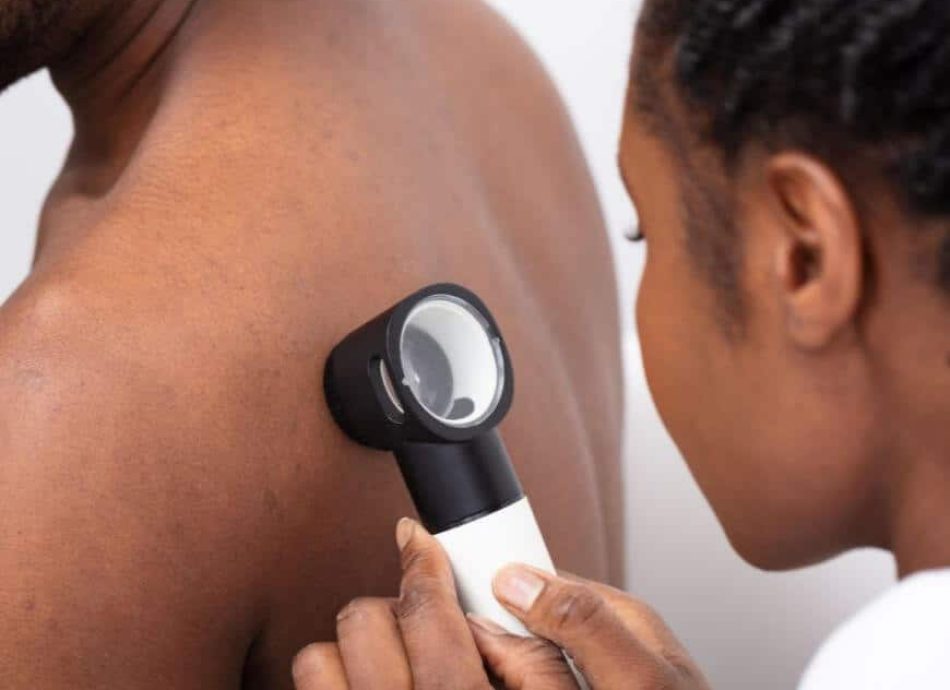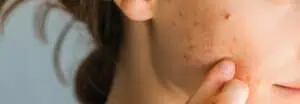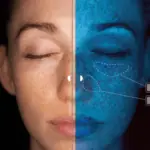Award winning dermatology service, with over 20 years on experience
Short waiting lists, on some occasions offering same week appointments
Safe environment, in Care Quality Commission approved facilities
Cyst Treatments Include:
cyst removal specialist In Cantebury And Kent
Cysts are a common and harmless occurrence that usually appear under the skin, typically round in shape, yellow or white in color with a dark plug visible. Although they may eventually disappear on their own without treatment, it is best to have your cyst examined by a medical professional if you feel concerned. Lumps on the skin can also potentially be related to more serious health issues, and it is important to seek advice from a consultant dermatologist who can confirm this and take any necessary further steps if need be. Taking note of changes in lumps and bumps is always sensible for good health management.
Alternative names: Sebaceous cyst, epidermoid cyst, pilar cyst, acne cyst, comedone, nodulocystic acne, steatocystoma multiplex, pilonidal cyst, myxoid cyst, boil, abscess, furuncle.
WHAT CAUSES CYSTS?
Cysts can appear anywhere on the skin, but usually occur on areas like the face and neck. Each cyst is an individual, though many of them share similar traits and movements in the way they form. Those that develop post-puberty are especially common, as chronological aging allows increased growth of facial hair which can damage follicles and lead to cyst formation. And while hormones may be a contributing factor, many experts believe the main cause lies in dysregulation of sebaceous glands due to infection or trauma. Furthermore, anyone prone to acne is more likely to have recurring cysts from time to time. As such, it’s important for individuals to be aware of these factors and seek prompt medical advice when one appears on their skin.
WHAT ARE THE SYMPTOMS OF CYSTS
One of the main types of cyst which appears on the skin is called an epidermoid cyst and these are usually found on the face, neck, chest, shoulders and around the genitals. These are usually associated with acne and are most common in young and middle aged adults. Pilar cysts are also relatively common and are formed around hair follicles so are often seen on the scalp. These run in families and are mostly seen in middle-aged women. Cysts look different depending in whether they are acutely inflamed/infected or chronic. Acute inflamed cysts look like tender red swellings on the skin, sometimes with a punctum in the centre that ‘leaks’ fluid, occasionally with a white pustular head. Chronic cysts are soft, smooth spherical swellings under the skin. Pilar cysts are often in the scalp and can be quite large, occasionally causing permanent hair loss over the surface skin.
HOW CAN ACNE BE TREATED?
Cysts are usually nothing to worry about and if they aren’t causing any problems can be left alone. Don’t be tempted to burst your cyst as you can spread the infection and are at risk of it growing back if the sac remains under the skin. If your cyst is causing you embarrassment, pain or it is recommended to be removed, it can be treated by a consultant dermatologist. Inflamed cysts (or acne cysts) tend to respond well to cortisone injections. They shrink and inflammation improves, all within the first 24-48 hours. Larger cysts can be surgically removed by a number of differing techniques. If cysts continue to form, then treatment is the same as for acne with a drug such as oral retinoic acid. Our Specialist Dermatologists can offer effective treatment to patients to help treat or improve cysts. If cysts are causing you problems, there is no need to suffer further.
FREQUENTLY ASKED QUESTIONS
ARE CYSTS A CAUSE FOR CONCERN?
Cysts are generally not a major medical concern, but they may swell up causing disfigurement, pain and every so often discharge their contents. Occasionally they can burst giving rise to sunken scars and scalp cysts can cause hair loss in the area in from which the cyst arises.
IS THERE ANYTHING I CAN DO AT HOME TO HELP MY CYST?
In some cases, cysts will go away on their own. Holding a warm compress such as a flannel against the cyst can help it to heal and reduce any inflammation you may be experiencing. You should never try to pop the cyst as this can lead to infection. If you are worried about a cyst or would like to find out the options to get it removed, arrange an appointment with a consultant dermatologist.
WHAT HAPPENS IF MY CYST IS INFECTED?
If you have an infected cyst, you may be offered antibiotics. A consultant dermatologist is also able to remove the cyst by cutting the skin and draining the fluid under a local anaesthetic.
ARE SOME CYSTS DANGEROUS?
Skin cysts are very rarely dangerous, however there are other types of cysts which can be a cause for concern. These include Ovarian cysts and pilonidal cysts.
REQUEST A CALL BACK
Please fill in this form and one of our team will give you a call back to arrange a consultation with one of our expert dermatologists.

What our Customers Say
WHY TREAT YOUR CYSTS AT CANTERBURY SKIN AND LASER CLINIC?
Here at Kent’s leading private skin and laser clinic, our experts are specialists in all aspects of dermatology, skin cancer, anti-ageing and beauty treatments. We are one of the few skin clinics in the UK where all medical consultations and treatments are provided by specialist doctors with Dermatology experience and laser training.
Canterbury Skin and Laser Clinic is regulated by the Care Quality Commission, ensuring the best level of treatment is provided to you in a safe environment. Our Clinical Lead Dr Mark Hudson-Peacock is a member of the British Association of Dermatologists, the British Laser Medical Association, the British Hair and Nail Society, the European Academy of Dermatology and Venereology and is certified by the Consulting Room. We have won many awards including the WhatClinic Patient Service Award in 2019 and the ghp Healthcare and Pharmaceutical Awards 2019.
INSIGHTS AND ADVICE

Understanding Acne: A Deep Dive For Acne Awareness Month
Acne Awareness Month is marked globally in June. It’s an opportunity to shed light on one of the world’s most common skin conditions, emphasising the importance of education, support and accessible treatments for those living with acne. Acne Awareness Month seeks to debunk misconceptions, share

Types of Aftershave Ingredients that Can Irritate Acne
Whilst acne primarily impacts teenagers and, in some cases for women during hormonal changes,, acne appearing on mens’ skin can also be common, and can be aggravated after shaving. Men who shave regularly are more prone to acne because shaving opens up their pores and

What is the best treatment for acne scars?
With acne being the most common skin condition in teenagers and young adults, more and more research into the treatment of acne is being conducted. Statistics show that acne affects three out of four people between the ages of 11-30 according to Medical News Today, with






